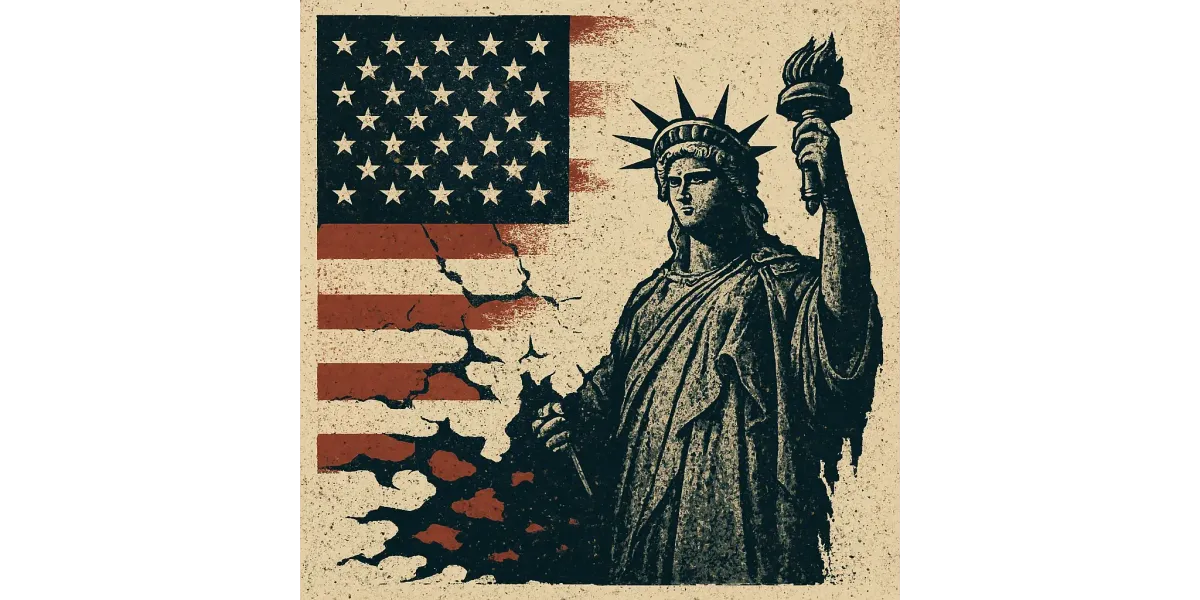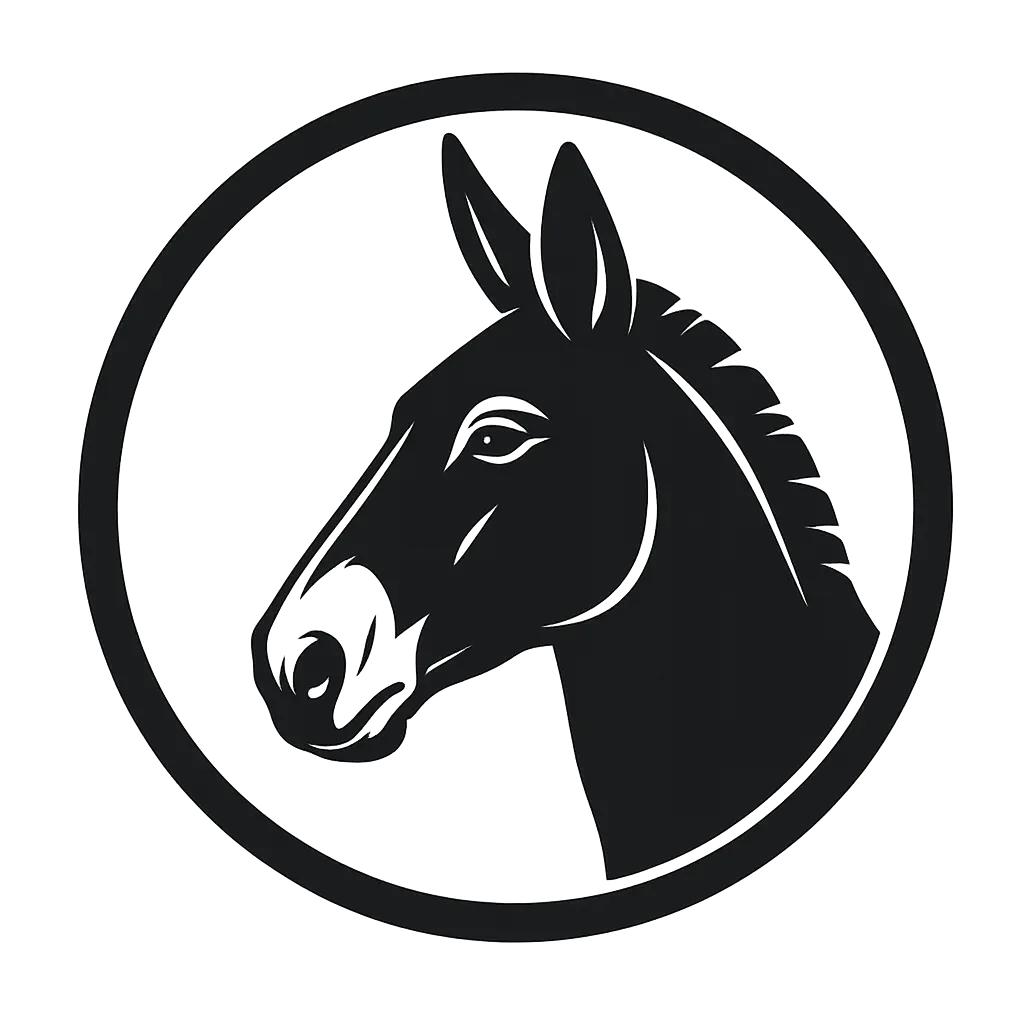The Erosion of Liberty: How We Got Here—And What We Must Do About It

“The natural progress of things is for liberty to yield, and government to gain ground.”
—Thomas Jefferson, 1788
Liberty does not collapse in a single moment. It erodes, quietly and gradually, under the weight of fear, convenience, and inattention. While tyrants often get the blame, it is apathy—our own failure to remain vigilant—that often clears the path.
In the United States, the promise of freedom has long served as both a birthright and a burden. We inherited a system forged in resistance to unchecked power. And yet, that very system—designed to preserve individual liberty—has steadily shifted toward greater consolidation, surveillance, and control.
This isn’t a partisan problem. It’s not just a recent trend. And it didn’t begin with any one president, law, or crisis. What we’re witnessing is the natural outcome of Jefferson’s warning playing out over decades, even centuries.
Natural doesn’t mean inevitable. What follows is not just a reflection on how liberty has slowly yielded ground in America—but a call to reclaim our role as its stewards. Because if liberty is to mean anything, it must be defended—deliberately, constantly, and personally.
Jefferson warned us, but we didn’t listen. Or maybe we listened, nodded, and assumed someone else would do the hard work of vigilance. Over time, we accepted certain losses as the cost of modern life—until the shape of our freedom was barely recognizable.
This is not about conspiracy. It’s about a pattern. A pattern in which fear, crisis, and technological change open the door for government power to expand—and for personal liberty to shrink.
After World War II, America entered a prolonged state of militarized paranoia. The National Security Act of 1947 laid the groundwork for a permanent intelligence apparatus. What began as a response to Soviet threats became the blueprint for domestic surveillance, secrecy, and unaccountable power.
The Church Committee in the mid-70s revealed just how far intelligence agencies had gone. Illegal wiretaps, COINTELPRO’s targeting of civil rights leaders, assassination plots—all done in the name of national security. For a brief moment, reform seemed possible. For a brief moment, we looked in the mirror.
Then came 9/11, and with it, a seismic shift. Americans, afraid and grieving, handed over massive authority to the federal government. The Patriot Act passed with barely a whisper of resistance. Mass surveillance programs, secret courts, indefinite detentions—all justified in the name of safety. And the public, for the most part, accepted it. Worse, we adapted to it.
Even as government overreach continued, a new layer emerged—private surveillance. We began to carry tracking devices in our pockets, share our thoughts with algorithms, and give away our preferences, locations, and habits without a second thought. Liberty wasn’t just taken—it was traded away, often for free shipping or social dopamine.
The most dangerous form of censorship isn’t the kind that’s loud and obvious. It’s the kind that slips in quietly, reshaping what people are willing to say, think, or even search for. Today, America finds itself navigating a new era of ideological policing—one that rarely involves government bans or book burnings, but still manages to narrow the range of acceptable speech.
Social media platforms, once hailed as the great democratizers of communication, have become gatekeepers. Algorithms suppress certain viewpoints not necessarily because they're false or dangerous, but because they're unpopular, inconvenient, or unprofitable. Posts vanish. Accounts get shadowbanned. Entire narratives are curated, reframed, or erased—not always by governments, but often in coordination with them.
State actors no longer need to formally censor; they can outsource the job to corporations with massive influence and zero public accountability. Pressure campaigns—from both political parties—have turned Silicon Valley into an ideological battleground, where policies are shaped behind closed doors and enforced without recourse.
This isn't just about what you're allowed to post—it's about what you're allowed to believe without social cost. The chilling effect is real. People hesitate to ask questions, challenge orthodoxy, or even express personal uncertainty. They self-censor not because of direct threat, but because they’ve internalized the risk of being wrong in the wrong direction.
And that, perhaps more than any law or executive order, signals the erosion of liberty. When fear—not law—dictates speech, the First Amendment still exists on paper, but it stops existing in practice.
We don’t lose liberty all at once. It slips away in fragments—so gradually that many don’t notice until it’s gone. And by the time they do, they’ve been conditioned to believe it was never theirs to begin with.
The First Amendment still protects against government censorship, but the spirit of free expression is under siege. We live in a culture of “permissible speech,” where the price of stepping outside the accepted narrative isn’t imprisonment—it’s social exile, career destruction, or digital invisibility.
This is more insidious than overt repression. It trains people to self-edit. And once citizens begin to police themselves, the censors’ job is already done.
Privacy, once a default, is now a relic. From warrantless surveillance to data harvesting by tech giants, our personal lives are mined, mapped, and monetized. The government may need a warrant, but corporations do not—and we hand them the keys every time we accept a cookie notice or click “I agree.”
The Fourth Amendment is still on the books. But in practice, our digital lives are an open book—one we’ve been tricked into writing ourselves.
Protest is still legal, but increasingly risky. Peaceful demonstrators are met with militarized police, surveillance drones, and strategic prosecutions. The right to gather and speak has not been abolished, but it has been aggressively discouraged. And for many, that’s enough.
When citizens fear retribution for standing up, the right to dissent becomes meaningless. The state doesn’t have to crush rebellion—it only has to make it feel futile.
The American legal system is not blind. It sees wealth, influence, and political alignment with perfect clarity. Whistleblowers like Chelsea Manning and Reality Winner serve hard time, while those who authorized torture or mass surveillance walk free and collect speaking fees.
Corporate malfeasance on a massive scale—think the 2008 financial collapse or Purdue Pharma’s role in the opioid epidemic—results in settlements, not jail time. Meanwhile, someone caught with a few ounces of marijuana in the wrong zip code can face years behind bars.
Protesters at Standing Rock were met with rubber bullets and felony charges. January 6th participants faced swift federal prosecution—while elected officials who encouraged them faced none. The contrast is not always about guilt or innocence—it’s about power, and the price of confronting it.
When justice is selective, liberty becomes conditional.
If liberty in America is fading, it isn’t because someone stormed the gates and seized it. It’s because too many of us stopped paying attention.
The real threat has never been a tyrant in a palace—it’s been the slow, corrosive effect of comfort, distraction, and fear. We accepted intrusions on our privacy for the promise of security. We silenced ourselves to avoid conflict. We let corporations monitor our thoughts and movements in exchange for convenience.
In short, we made a trade: freedom for ease. And we didn’t read the fine print.
We allowed ourselves to believe that liberty was permanent—that once earned, it would self-perpetuate. But freedom doesn’t survive on autopilot. It demands maintenance, scrutiny, and courage. When those go missing, decay sets in. Not all at once. Just enough, year after year, to lower the ceiling on what it means to be free.
The tragedy isn’t just that liberty has eroded—it’s that so few noticed, and even fewer cared.
But here's the truth that remains: the story isn't over. This doesn't have to be our endpoint. We still have agency. The cost of complacency is high, but it is not yet final.
John Stuart Mill warned that “The worth of a state in the long run is the worth of the individuals composing it.” In On Liberty, he made the case that freedom cannot survive in a society of passive, indifferent people. A free society demands more than legal protections—it demands character.
Liberty isn’t a gift. It’s a responsibility. It doesn’t survive on sentiment, or slogans, or hashtags. It survives through the daily, deliberate actions of people who refuse to let it rot. And that starts with reclaiming the role that far too many Americans have abandoned: the role of the citizen.
A citizen is more than a voter. A citizen is a steward of the republic—an active participant, not a passive consumer. We need to stop thinking like spectators and start thinking like owners.
That means paying attention—not just to elections, but to the slow churn of policy and power between them. It means speaking up, especially when it's inconvenient. It means teaching our children—not just what liberty is, but what it costs. It means questioning easy narratives, defending due process even for those we dislike, and insisting that the law apply equally, especially when it doesn’t.
You don’t need a platform or a title to defend liberty. You need a spine.
-
Read the Constitution.
-
Call your representatives—and know their names.
-
Support journalists who dig, not those who entertain.
-
Join local watchdog groups.
-
Refuse to let fear dictate what you say or believe.
-
Talk to your neighbors. Argue, listen, think.
A free society is noisy, uncomfortable, and fragile. That’s what makes it worth protecting.
Liberty has yielded much ground. But it has not yet vanished. And if enough of us rise to meet the moment—not with slogans, but with resolve—then what’s been lost can be reclaimed.
Not by waiting. Not by wishing. By showing up. By remembering who we are.
And by deciding that our freedom is still worth the fight.
